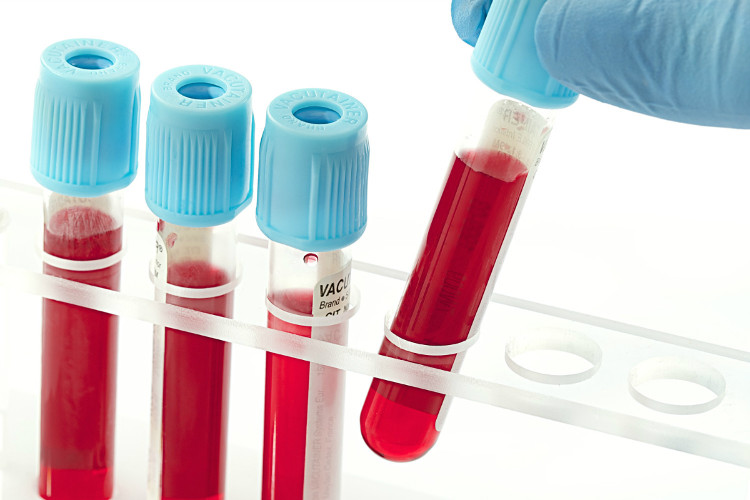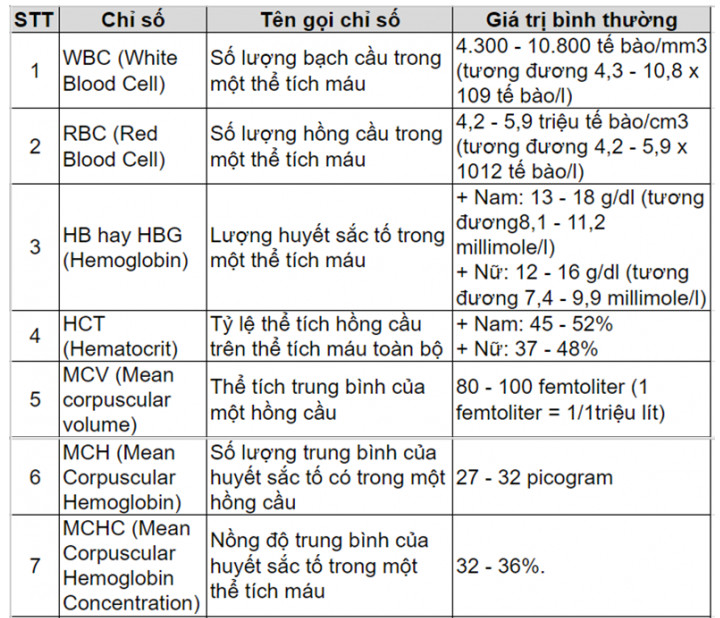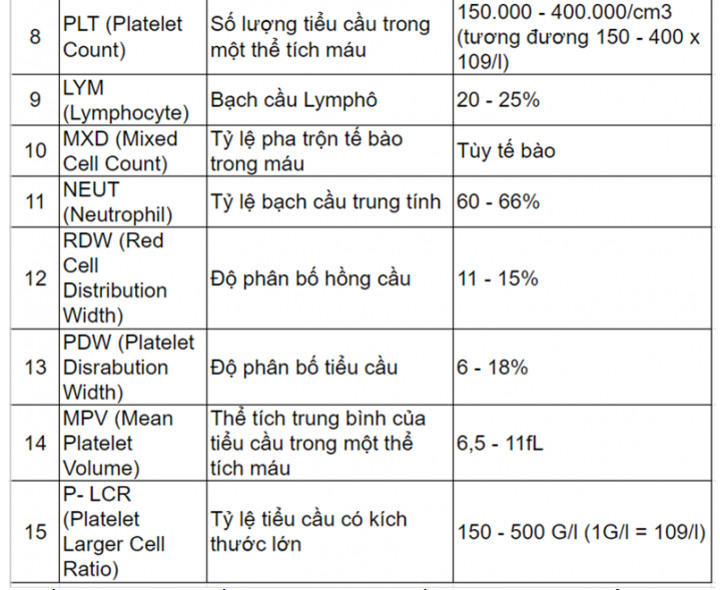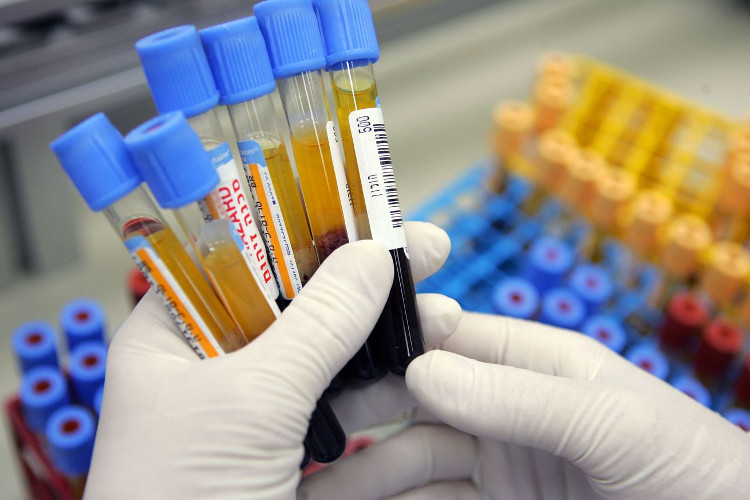Things to know about general blood tests
A general blood test is one of the routine blood tests that are indicated in many cases. This test helps detect common diseases and is also used in cases of early screening for diseases, pre-marriage, general health check .
So what does a general blood test include? What should be done before blood tests and blood test results are normal? Please join us to answer those questions right in this article.
What does a general blood test include?
General blood tests usually include the following items:
- Check blood type.
- Blood diseases, related to blood such as leukocytes, red blood cells, platelets, hemolysis, myelosuppression, anemia, blood cancer.
- Test of liver function (SGOT, SGPT) and kidney function such as blood urea, creatinine.
- Diabetes.
- Brain disease such as brain infection, cerebral anemia.
- Hyperlipidemia (cholesterol, triglyceride, HDL-C).
- Gout.
- Liver diseases such as hepatitis A, B, C, E, D, . cirrhosis, increased liver enzymes, liver cancer .
- HIV detection.
In addition, depending on the examination package, there may be other blood tests.

General blood tests are quite simple.
What is the general blood test?
General blood tests are quite simple. The doctor will take some blood from the patient and take it for testing. Basically, general blood tests usually include the main tests such as blood test, blood sugar test, blood fat test, liver enzyme test .
- Blood formula test : To identify indicators of the number of red blood cells, white blood cells and other blood cells. Besides, it also shows the properties of blood cells such as: size, amount of hemoglobin . Thereby, the doctor can detect early blood diseases such as anemia, infection, blood cancer, .
- Blood sugar test : to determine blood sugar levels to help detect diabetes. You have a higher risk of developing diabetes if your fasting blood sugar result is higher than 100 milligrams per deciliter (mg / dl).
- Blood fat test : helps measure cholesterol content (total cholesterol, LCL - Bad cholesterol and HDL - Good cholesterol) and triglyceride in the blood. The high content of these two ingredients warns that the risk of cardiovascular diseases is threatening our health every day.
- Liver enzyme test : includes alanine amino transferase (ALAT or SGPT) and aspartate amino transferase (ASAT or SGOT). These parameters allow diagnosis of liver diseases (viral, alcohol or cancer). Not only does it indicate liver diseases, the levels of these enzymes also increase in pancreatitis or myocardial infarction.
The meaning of the common indicators in general blood test results
Not only is it important in your doctor's diagnosis, the results of your blood tests are also very important in helping you understand your body and your health. Following the assessment we have compiled below, you will know how normal the general blood test results are.


The meaning of the common indicators in general blood test results.
When and who needs to have a general blood test?
According to health experts, any elderly, adult to child should get a regular blood test every year.
Periodic general blood tests can help detect some diseases early to treat them promptly. Or warning future diseases to have a plan to adjust diet and living, better prevent diseases.
Besides, there are also some patients who are asked by the doctor to have blood tests to diagnose the disease. In particular, the object is children and pregnant women.
Periodic blood tests are extremely important, helping patients to identify missing or excessive substances in the body to regulate nutrition in order to develop balance.

The best time to take a blood sample is morning.
Notes before taking blood for testing
What to do before blood tests?
- Do not take the medicine before going to work for blood tests : some tests only give accurate results when the patient does not eat or drink anything for 4 - 6 hours or do not eat breakfast after waking up (like testing check diseases related to blood sugar and blood fat (diabetes), cardiovascular disease (cholesterol, triglyceride, HDL, LDL .), liver disease). Because after eating, nutrients will be converted into glucose, causing blood sugar to rise. If the test is done, the result will be inaccurate.
- Patients should avoid using stimulants such as alcohol, cigarettes, coffee . several hours before taking blood for testing.
- Some other tests, patients do not need to fast before taking blood like HIV, kidney failure, hyperthyroidism, Alzheimer's (dementia in the elderly) .
The best time to take blood for testing
The best time to take a blood sample is morning . When taking blood samples, within 12 hours before it should fast, do not drink soft drinks, fruit juice, milk, alcohol . The biochemical indicators of some tests if done at the wrong time, after eating or after using stimulants will give inaccurate results.
- Instructions on how to read blood test results
- Instructions on how to read urine test results
- What blood tests can you know about?
- Ultra-fast blood tests with new equipment
- Blood tests can detect Alzheimer's disease
- The things doctors won't reveal in your blood test
- Scary things nobody knows about blood
- Blood tests help detect Alzheimer's disease
- Successfully developed a new blood test
- Blood test method helps detect cancer 5 years early
- Clinical significance index of medical tests
- Mobile-based technology helps home blood tests
- The chip sees dozens of diseases in just one drop of blood
- Blood tests can predict pregnant women giving birth prematurely
 Green tea cleans teeth better than mouthwash?
Green tea cleans teeth better than mouthwash? Death kiss: This is why you should not let anyone kiss your baby's lips
Death kiss: This is why you should not let anyone kiss your baby's lips What is salmonellosis?
What is salmonellosis? Caution should be exercised when using aloe vera through eating and drinking
Caution should be exercised when using aloe vera through eating and drinking